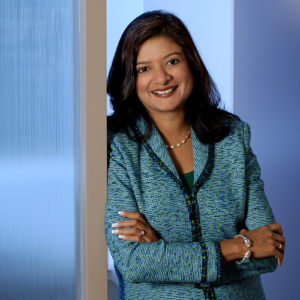 By Ambassador Gianna Angelopoulos, Vice-Chairman of the Dean’s Council of the Harvard Kennedy School
By Ambassador Gianna Angelopoulos, Vice-Chairman of the Dean’s Council of the Harvard Kennedy School
In May 2000, I received a call asking me to take over the Athens Olympic Games Organizing Committee. Three years earlier, I had led and won Athens’ successful bid for the 2004 Olympics. Now I was being asked to rescue an operation so far off its tracks that the president of the International Olympic Committee suggested publicly that the Olympics might be taken away from Greece.
Host cities are given seven years to prepare for the Olympics. We now had four. I had to build and lead an organization the size of a Fortune 200 company. The entire world waited, watching to see whether I would fail or succeed in this Herculean challenge.
I had always wanted to serve my country. As a child, I dreamed of being an ambassador, because it seemed to me that ambassadors had mysterious, glamorous jobs that impacted the fates of nations. When I confessed my dream, I was reminded that I had no family connections, no diplomatic lineage, and, besides, there were no women ambassadors at that time.
When I was born, Greek women were still two years away from winning the right to vote. Growing up on the island of Crete, I had two strikes against me: I came from very modest means, and I was a woman in a male-dominated culture. Fortunately for me, I had a father who was very progressive. When other men would ask him if he was disappointed to have two daughters, he would say: “I don’t need a son, I have Gianna.” He convinced me that I could do anything a man could do.
But to compete on an equal playing field with men required breaking glass ceilings, being bold, and being persistent. At almost every stage of my life, this is what I had to do – and did.









